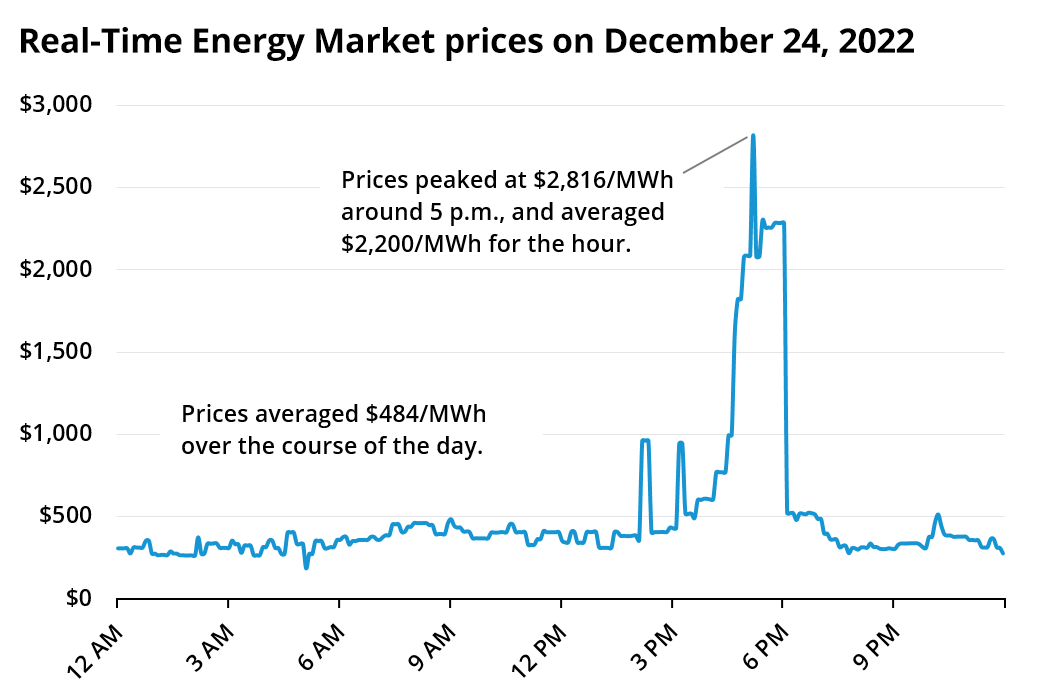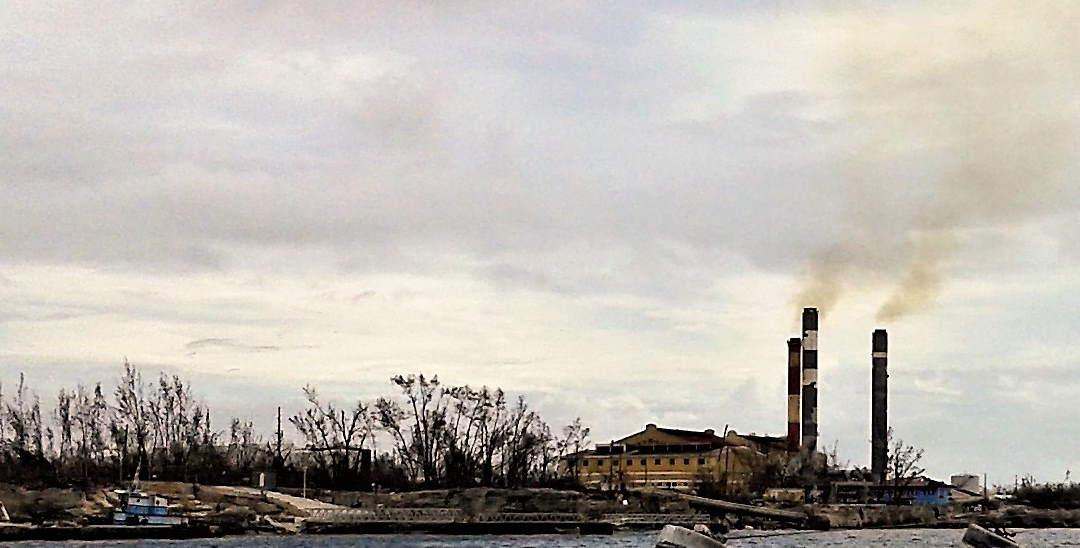Remember Christmas Eve? There had been some crazy weather coming through, as temperatures dropped from balmy to bitter cold and falling rain turned to ice. The storm affected grid infrastructure all across the country and power distribution lines were failing all over New England. Heroic utility linemen were sacrificing their holidays to make sure the rest of us had light.
That day also saw some wildness in New England's energy market. I know I wasn't the only nerd reloading ISO New England's real time maps and charts that day just watching in morbid fascination as electricity prices went through the roof. Check out this graph from ISO New England.

Electricity prices on Christmas Eve were already extremely high - averaging over $484 per megawatt hour (MWh) over the course of the day. But in the late afternoon they hit escape velocity, with regional prices peaking at $2,816/MWh around 5 PM. By contrast, I just checked the cost of a megawatt hour right now and it is $45.72.
ISO New England did not call for controlled power outages on Christmas Eve, but did declare a capacity deficiency, meaning the region’s supply of electricity was insufficient to meet required operating reserves in addition to satisfying consumer demand, at 4:30 p.m. This action was taken after approximately 2,150 megawatts (MW) of resources scheduled to contribute power during the evening peak became unavailable.
The way energy markets work, energy companies commit to being able to sell electricity to the grid when it is called for, and they are compensated for this commitment. Many fossil fuel-powered plants are kept around for the purpose of collecting these capacity payments, which are supposed to ensure when a demand spike in energy occurs, there will be generation capacity to fill it.
While blackouts on one of the chilliest days of the year were narrowly avoided, one can't ignore that, on Christmas Eve, several of our region's power generation companies failed to deliver the power they had been paid to commit to provide. Our regions dirtier, expensive, oil-powered plants were fired up to cover the shortfall that day, to fill in for natural gas plants knocked offline during the cold.
I don't have any grand lessons to draw here, except to say that its important to examine how the systems that support our lives perform when they are under stress.
I do have a couple other thoughts. First, keep this story in mind the next time Republicans try to undermine energy efficiency programs like NH Saves, claiming they just want the best deal for ratepayers. There are real capacity constraints in our electricity system, and the one of the best ways to live with them is to ensure that we aren't wasting the power we do have.
Second, I think there is a case for moving our peak capacity generation systems away from fossil fuels, and toward solutions like biomass, biofuels, hydrogen, and battery storage. The capacity payment system is a subsidy for power generation systems that are too expensive for every day use but can be counted on to help out in a pinch. If we are going to have this subsidy around anyway, why not use it to finance something a little greener?

